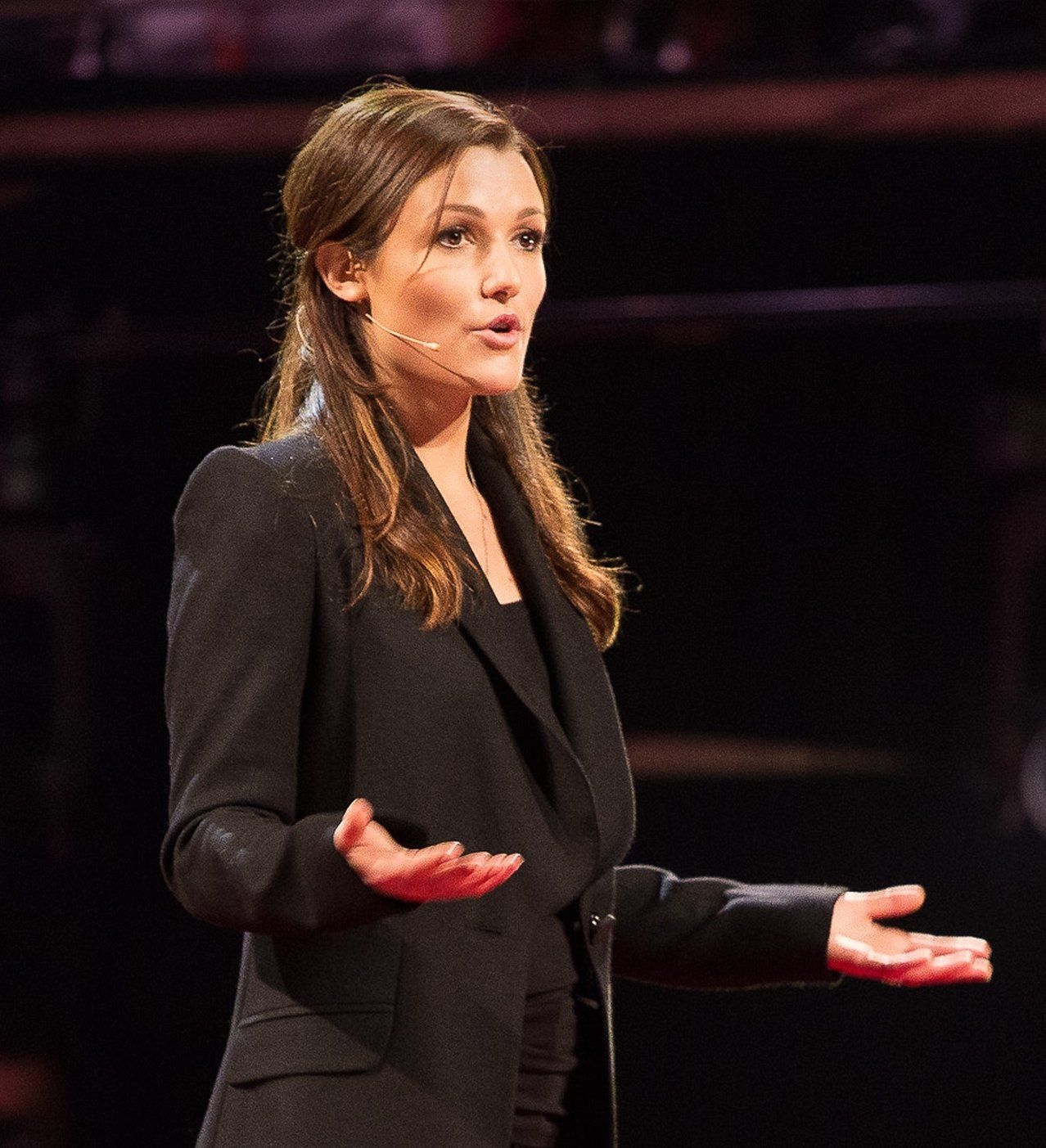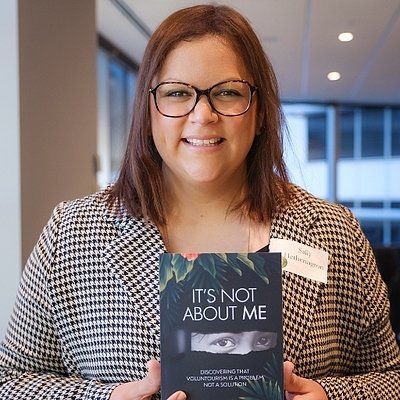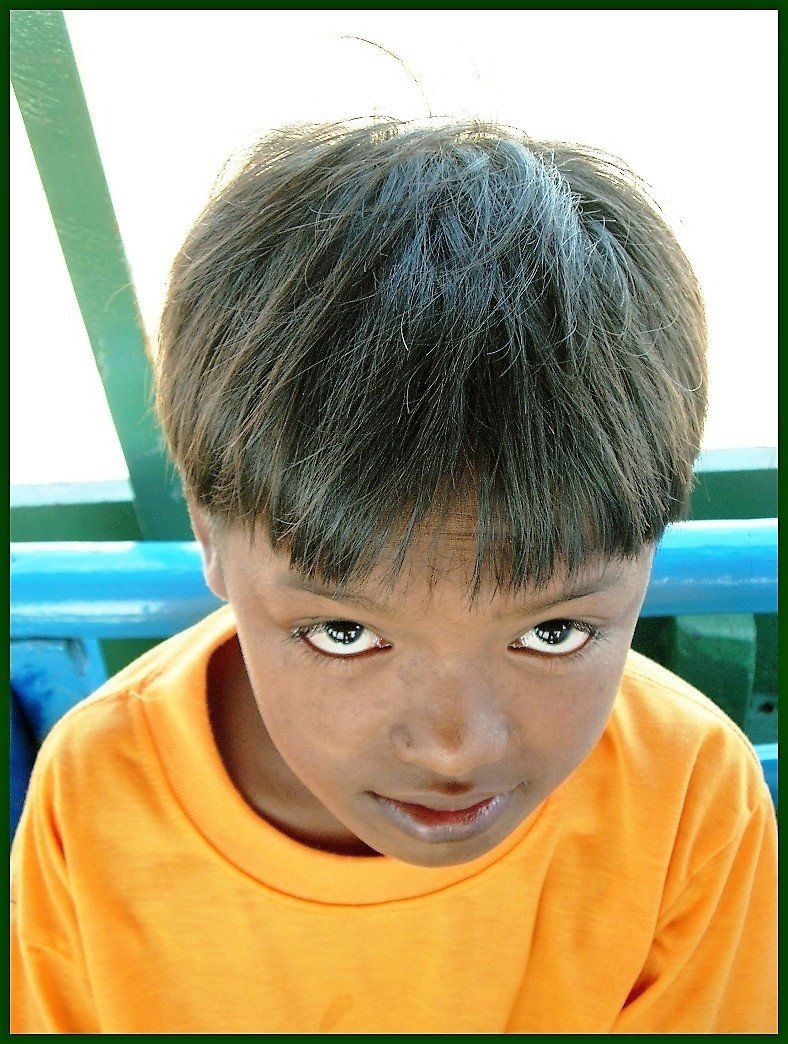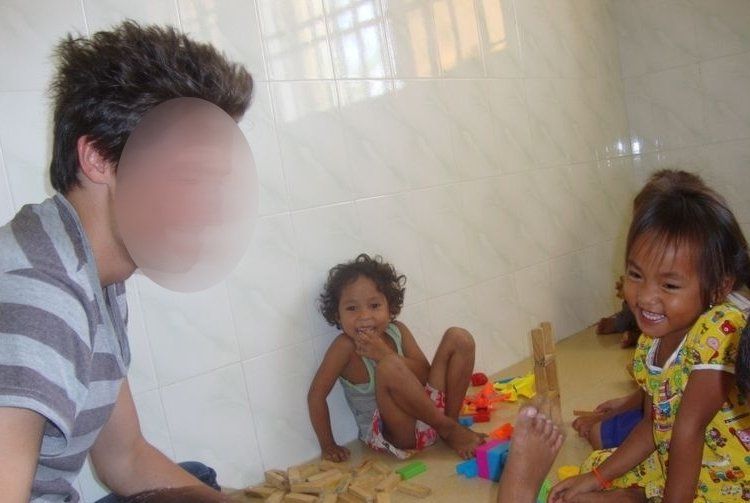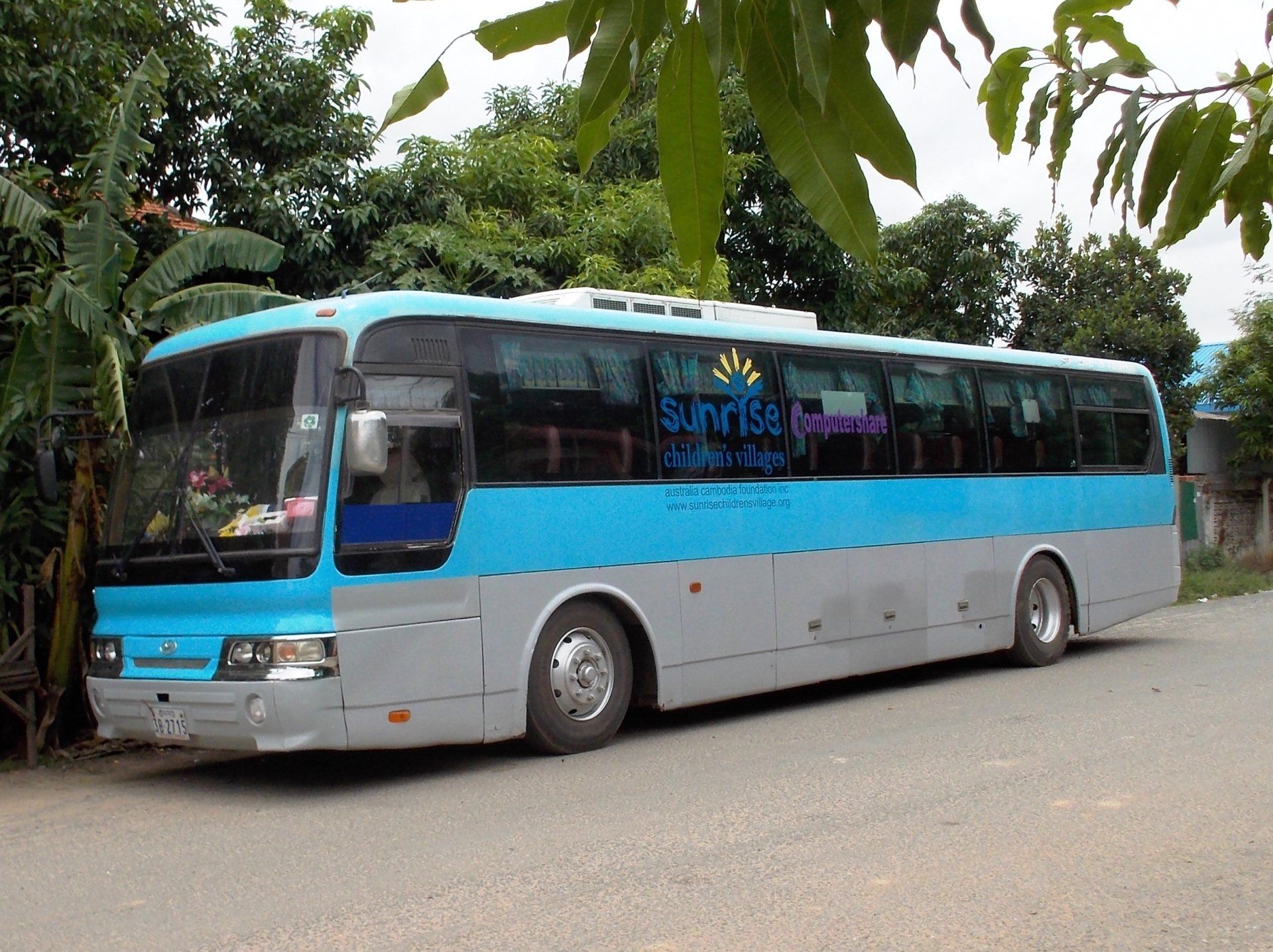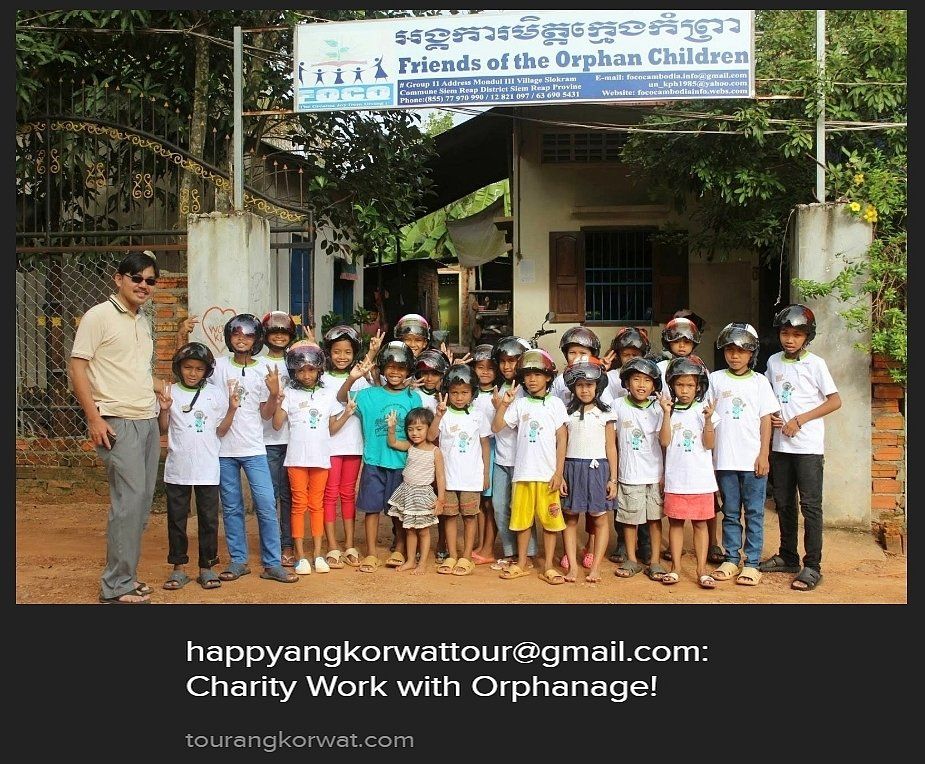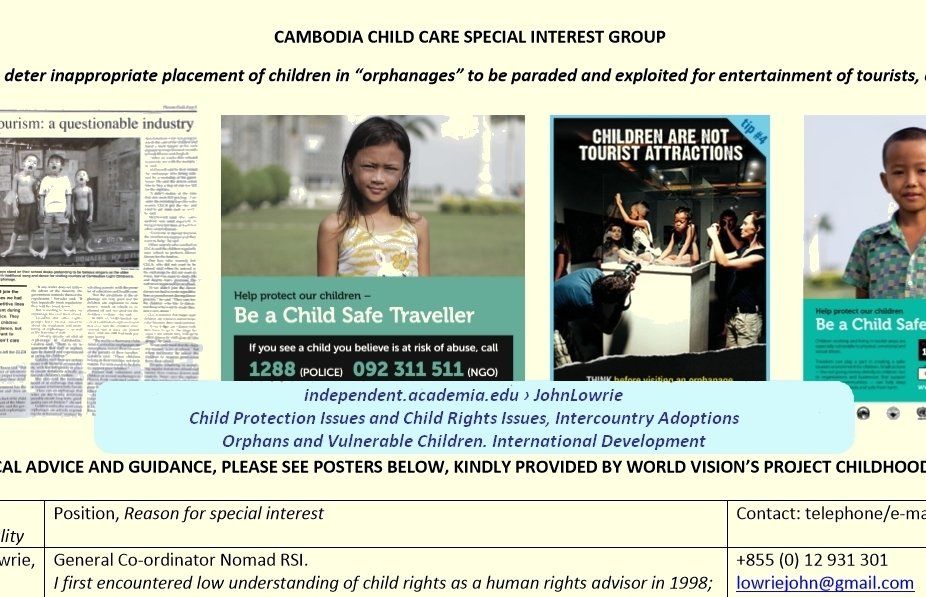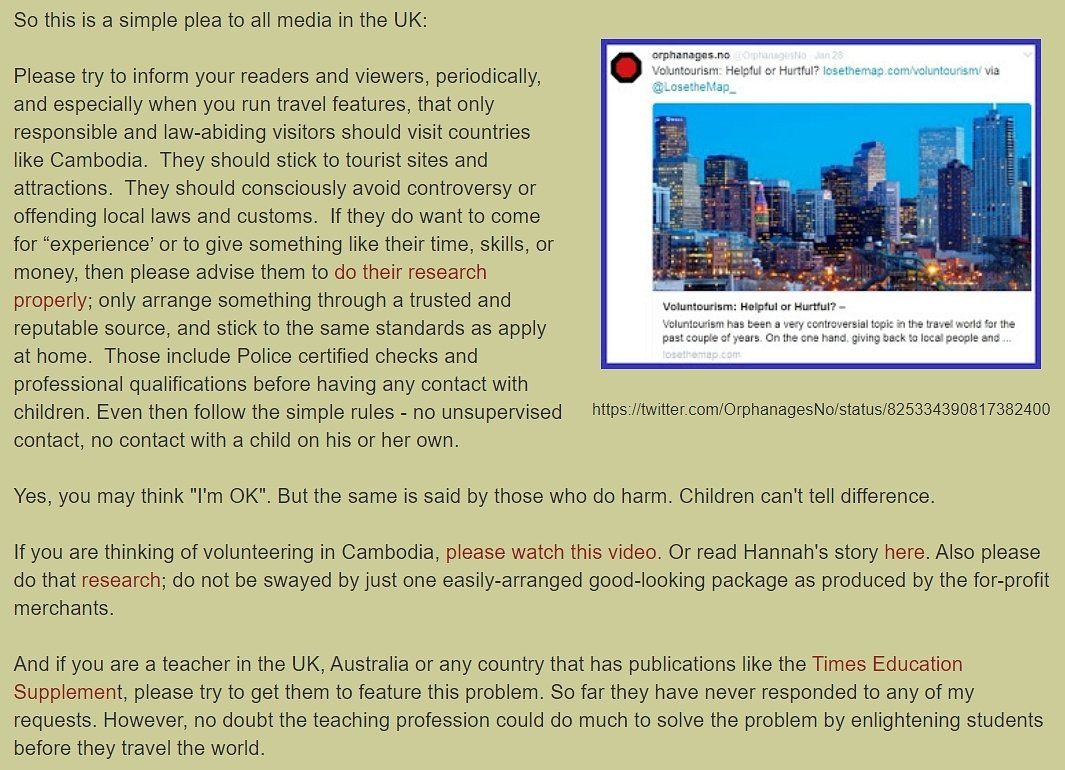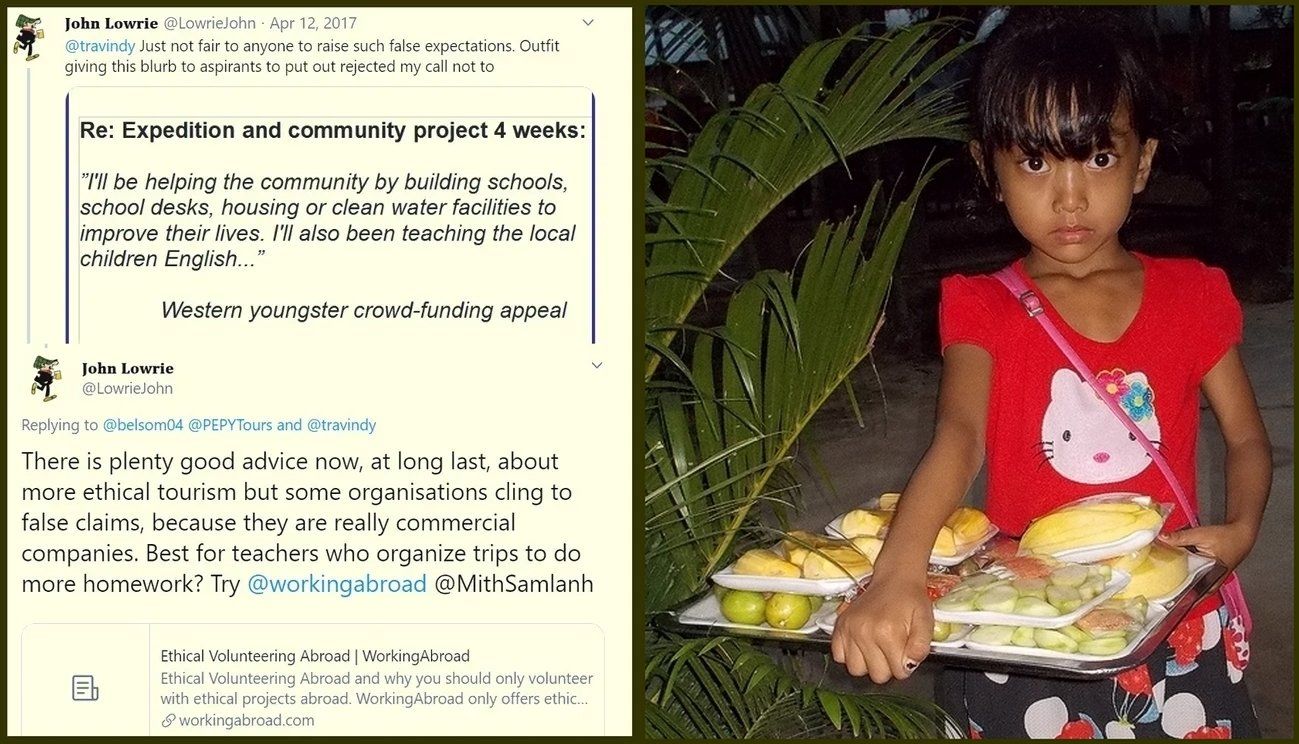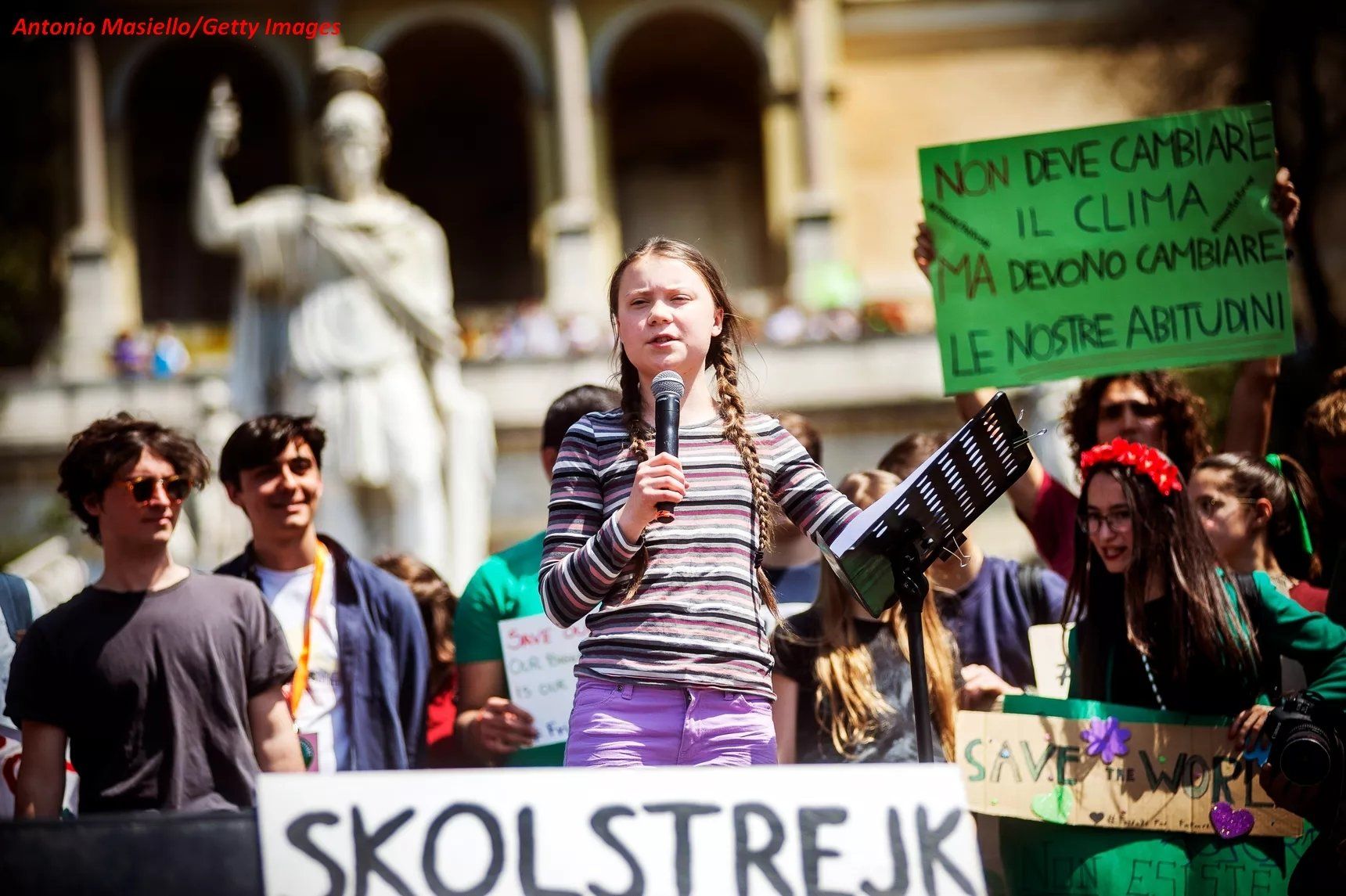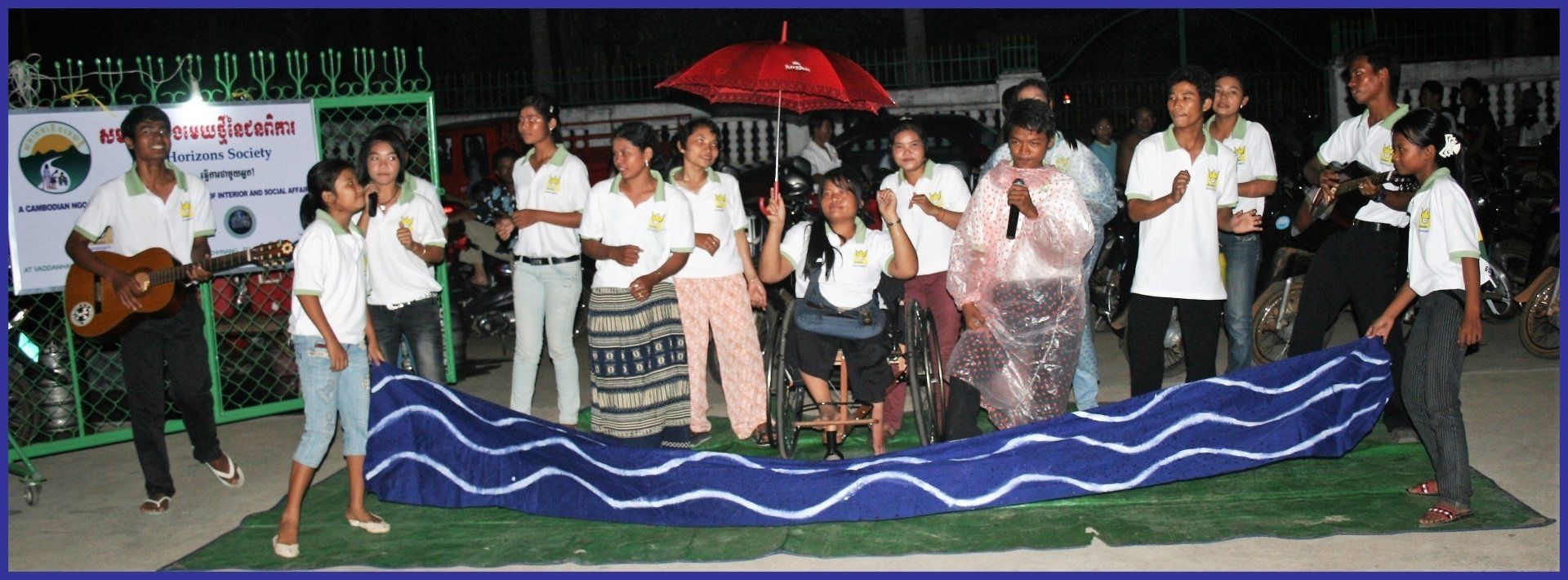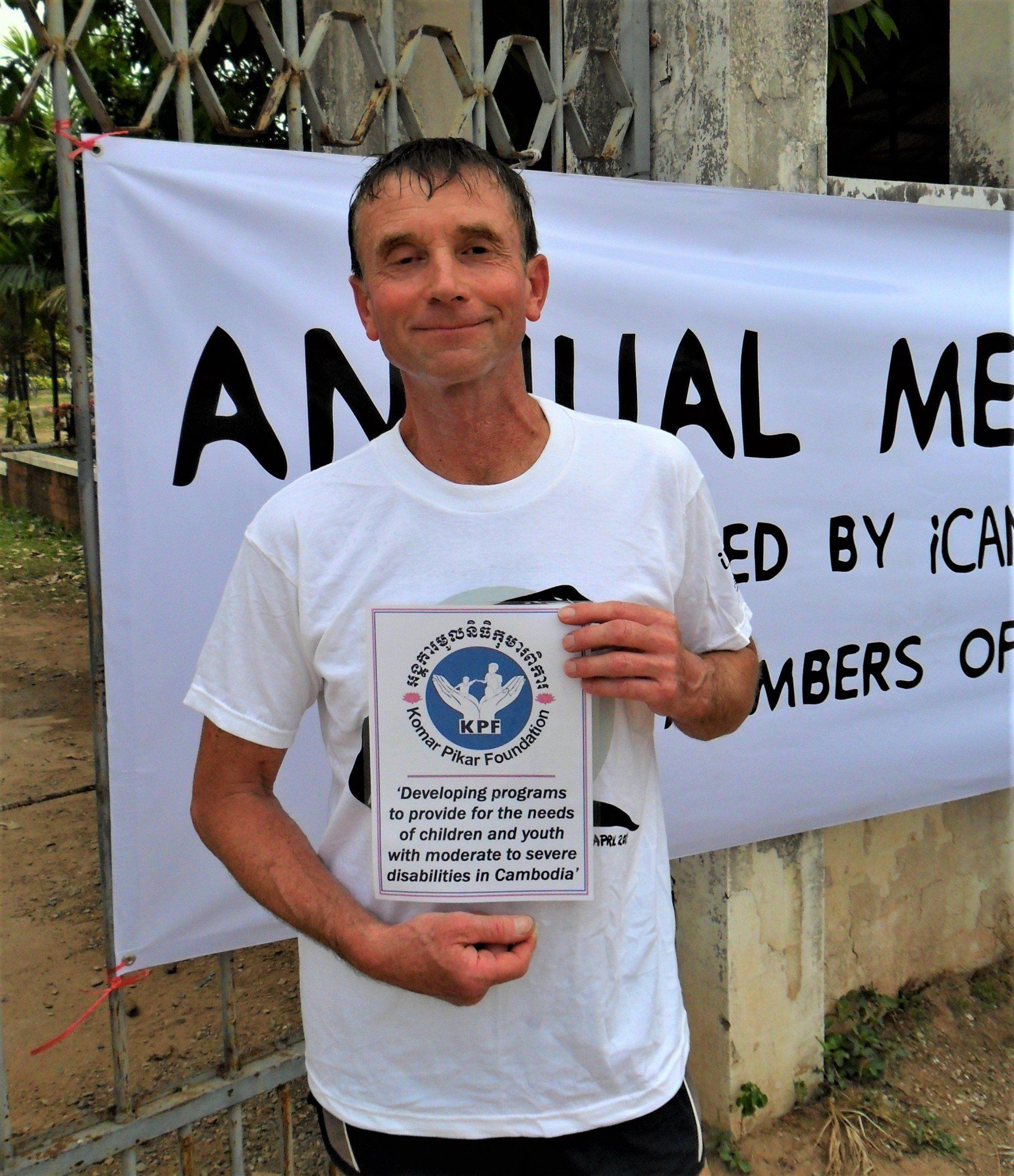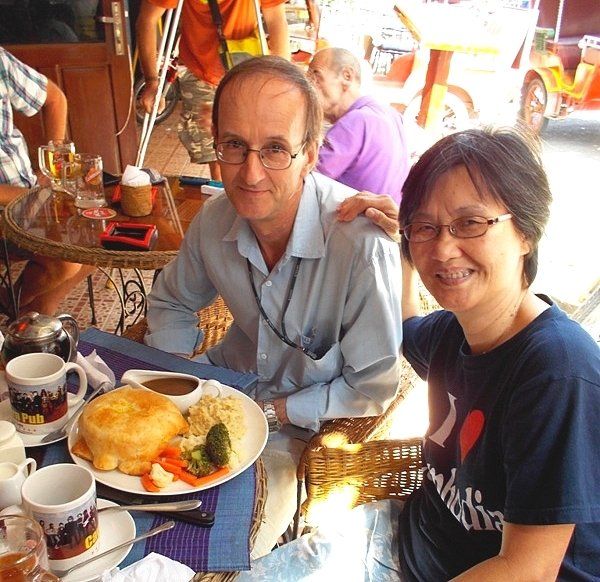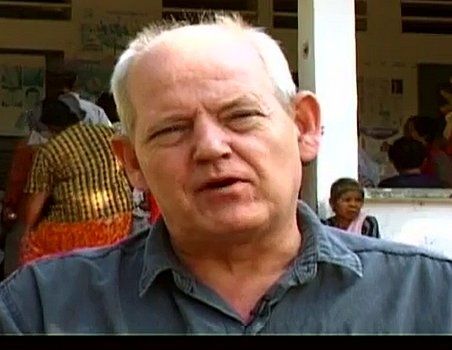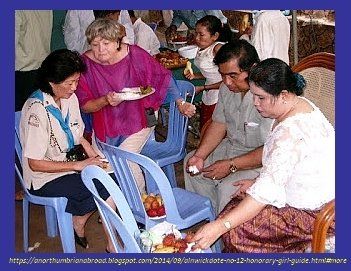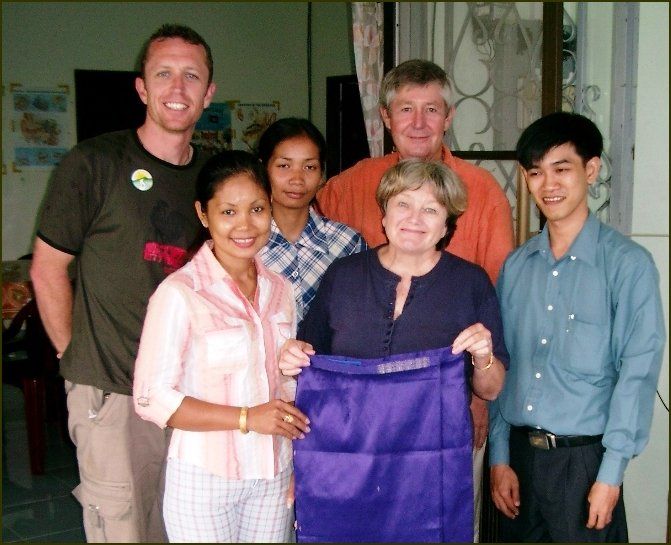Today it's popular for young people to travel to see the world, for it to be a formal or informal part of their education and career-plans. Is it just good adventure, experience, and social/cultural exchanges - or more harm than good?
Rites of Passage or Paradox of Rights?
Young people today are far more worldly than previous generations, thanks to education and the internet. While majorities of them "in the West" undoubtedly lead in this regard growing minorities in the developing world, like in Cambodia, are catching them up. Indeed it is fair to say that today, compared to previous generations, young people have far more in common with each other. They also enjoy unprecedented abilities to interact directly, to share interests and to make new friends and contacts.
Many young people now want to see the world before they "settle down" in workaday lives. In countries like Australia it is almost an essential rite of passage. Is such a rite right, even a right at all? Or can it lead to a paradox of rights? Do these bright keen youngsters have an unfettered right to descend on "less advanced" communities? Paradoxically what about the other issues that their generation pursues harnessing the power of social media? The desire for free-spirited inter-continental travel goes against their vociferous environmental concerns? And does that free spirit help to open doors for the worst of humanity to ply their evil trade as well as other less insidious but still harmful exploiters?
People like me want to ensure that "more good than harm" comes from foreign visits, whether as [ethical] tourists or more pertinently as volunteers wanting to do more in their travels than sight-see, i.e. to "do some good", to be "voluntourists". Our concerns encompass the full range of foreign visits, from the casual and unplanned, right through to fully and carefully-planned volunteer placements and internships; of promises and perils on the way. Please be a "Child-Safe Volunteer or Tourist".
For more detailed expositions please access Tess Guiney's study and book by Kate van Doore et al.Also worth accessing are Pippa Biddles' experiences as featuring in this article by Melissa Godwin.
First some of the very best of young individuals - ideal role models
Tara Winkler
Volunteered at an orphanage, realised it was wrong, and set about returning children to be cared for at home or in the community.
The very best and - sorry but they must be shown - the worst in Cambodia and of other countries.
"Volunteering "opens eyes" and "opens doors". This slide starts with a worst scenario. It then proceeds to show how problems got far worse - despite our best efforts, warnings and alternative solutions
- before they got better thanks to the likes of Tara Winkler, Friends International
and World Vision. "Child Safe Tourism" has grown as an international campaign. However, are we doing enough to ensure that all visitors, including young people in search of adventure, are aware of the pitfalls? I argue that universities, schools and teachers' media need to do more
on a sustained basis.
Latest travel advisory
from the UK's Foreign Office is the best yet (October 2019), good for all nationalities.
Beware of soft-sells; easy options, and false claims.
Only use reputable not-for-profit agencies.
Take great care - in developing countries like Cambodia it is all-too easy to gain access to children, many of whom are simply friendly, naive, and/or hoping for money from you. The point is they are unaware of dangers that parents and teachers in the developed world explain in warnings to boys and girls.
"Never talk to strangers or get in their car!"
Even more sinister there are adults keen to exploit children by getting them to sell goods, or to beg, and even to provide sex. Note also that women - even family-members - are known to exploit their children although most offenders are men , There is just one simple piece of advice:
Never be in the company of children on your own; definitely never in a private room, and always make sure there are adults of both sexes present, especially travelling partners.
Internet searches inevitably mean that the top sites may not be the best or most appropriate for arranging foreign travels. It is easy for commercial entities to be listed before reputable volunteer agencies. Unfortunately far too many well-intended young people are seduced by the slick marketing. All-in packages seem attractive when it might not be clear what it is they are paying for, especially the promised experience.
The most absurd claims are as above - can anyone accomplish all that in two weeks? So please do your research. My blog gives links as well as good sites like
Move to Cambodia and
PEPYtours.
I can personally vouch for the following agencies:
VSO; Challenges Worldwide; AfID; Globalteers; Australian Business Volunteers;
Others seem to have the right priorities: Working Abroad; Lattitude UK;
More young people acting responsibly
Power of Social Media
Finish student Greta Thunberg became a social media sensation advocating world leaders to act on global warming by boycotting air-trave.
By the way - and a few of the best oldies too.
Volunteering is not just for the young. Older and younger ones make a good team.
Exuberance of Youth with Wisdom of Age.
The key to successful volunteering abroad rests in good due diligence on the part of the volunteer, his or her hosts, and most importantly by intermediaries on their behalf. Realistic expectations must be established together with thorough checks to make sure all parties can meet obligations. In addition there must be contingency plans and arrangements if and when things go wrong, as they will inevitably from time-to-time. Proper travel insurance is one pre-requisite making sure that conditions cover foreseeable eventualities. Another is if there is to be access to children and vulnerable people appropriate references and police criminal checks (available) in UK). Pre-departure and in-country induction training must take place with similar detailed arrangements for the placement in-country. There must be locally-available representatives on-hand who speak the language; and are fully-familiar with the placement and local context. When all of these are in-place, both volunteers and hosts greatly benefit from the placement.

